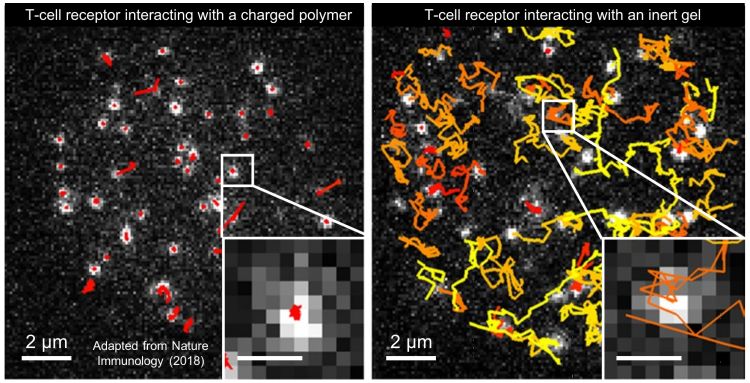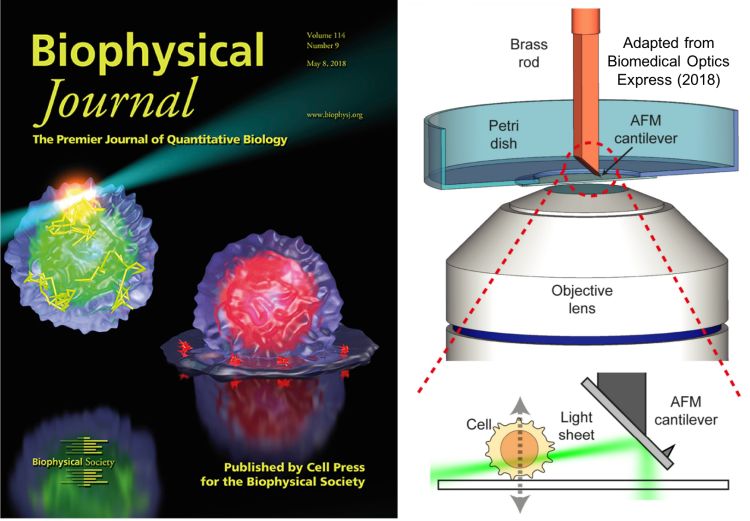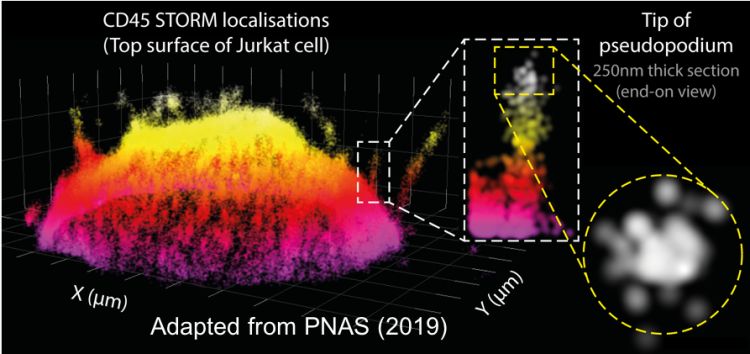
Dr Aleks Ponjavic
- Position: Associate Professor
- Areas of expertise: Single-molecule fluorescence imaging; light-sheet microscopy; super-resolution microscopy; high-speed fluorescence microscopy; cellular biophysics
- Email: A.Ponjavic@leeds.ac.uk
- Phone: +44(0)113 343 3839
- Location: 1.02D Sir William Henry Bragg
- Website: Twitter | Googlescholar | Researchgate | ORCID
Profile
I am an Associate Professor on a joint appointment since 2020 between the School of Physics & Astronomy and the School of Food Science & Nutrition. After graduating with an MEng and a PhD in Tribology (2014) from the Mechanical Engineering department at Imperial College London, I undertook postdoctoral work in the Chemistry department at the University of Cambridge (2015-2019).
Research interests
Cells make our bodies work through a myriad of complex processes that are generally poorly understood, even to this date, and our research focuses on improving the tools we have to visualise these processes. More specifically, our group uses fluorescence microscopy to observe the behaviour of the individual proteins that make up one the most basic components of cells.

Single-molecule fluorescence imaging. By using specialised microscopes and efficient laser excitation, it is possible to take videos of individual molecules as they move around and interact with their environment. We apply this technology to tackle fundamental biological questions such as “How do our immune cells identify germs?” and “How does cellular DNA change in shape to control gene expression?”.

Light-sheet microscopy. Traditional single-molecule imaging has mostly been limited to the glass-liquid interface as this enables extremely efficient laser excitation of molecules. By creating a thin sheet of light, it becomes possible to perform single-molecule imaging above the glass and inside cells. Our research focuses on implementing new ways of creating these light sheets to enable single-molecule studies in cells under more physiological conditions.

Nanoscale imaging. Super-resolution microscopy has been developed to overcome the diffraction limit of visible light (~250nm), which can be used to visualise structures down to the scale of the proteins themselves (~5nm). We develop and improve single-molecule super-resolution microscopy technology to investigate how proteins organise in 3D on the complex structures of cells.
<h4>Research projects</h4> <p>Some research projects I'm currently working on, or have worked on, will be listed below. Our list of all <a href="https://eps.leeds.ac.uk/dir/research-projects">research projects</a> allows you to view and search the full list of projects in the faculty.</p>
Primary investigator (PI)
Research groups and institutes
- Molecular and Nanoscale Physics
Current postgraduate researchers
<h4>Postgraduate research opportunities</h4> <p>We welcome enquiries from motivated and qualified applicants from all around the world who are interested in PhD study. Our <a href="https://phd.leeds.ac.uk">research opportunities</a> allow you to search for projects and scholarships.</p>Projects
-
<li><a href="//phd.leeds.ac.uk/project/1211-developing-high-resolution-fluorescence-microscopy-techniques-to-study-confined-and-nanoscale-rheology">Developing high-resolution fluorescence microscopy techniques to study confined and nanoscale rheology</a></li>
<li><a href="//phd.leeds.ac.uk/project/1114-mapping-the-nanoscale-organisation-of-cellular-proteins-across-complex-topographies">Mapping the nanoscale organisation of cellular proteins across complex topographies</a></li>

